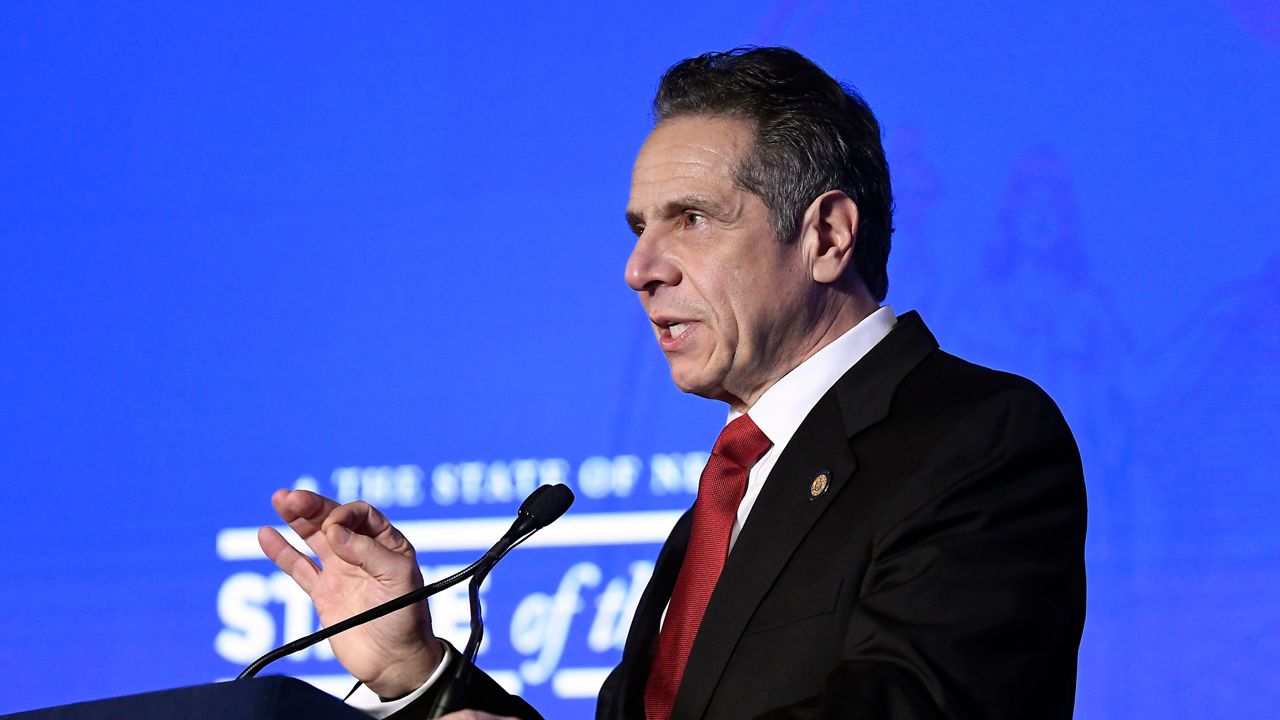The problems facing Gov. Andrew Cuomo seem insurmountable for any politician to stay in elected office. And the controversies continue to snowball.
On Thursday, former aide Charlotte Bennett detailed in a national televised interview the sexual harassment allegations she has leveled against the governor, including intimate questions about her sex life. Hours later, The New York Times and Wall Street Journal each published stories of how the top aides in the Cuomo administration withheld key fatality data from a Department of Health report issued in July that had largely absolved the decision to require nursing homes to not turn away COVID-19-positive patients.
And at the same time, Senate Majority Leader Andrea Stewart-Cousins, in an interview on Capital Tonight, said she was edging toward backing the governor's resignation if another woman were to come forward alleging inappropriate behavior.
Cuomo has apologized for making anyone feel uncomfortable, has denied doing anything inappropriate, and his administration in a statement late Thursday evening said the data withheld on fatalities in nursing homes had not been verified and could not be released to the public.
But the consequences of these twin controversies, as well as the political fallout the governor will face, are less clear.
Consider the Quinnipiac University poll that was released on Thursday afternoon, prior to the latest wave of headaches for the governor. Yes, New York voters do not want him to run for a fourth term and, yes, his approval rating has fallen back down to earth from the stratosphere of the last year when he became a national figure.
But the poll also contained, for now, good news for Cuomo: Democratic voters have not deserted him. Non-white voters are sticking with him.
More broadly, labor union leaders from the politically key organizations like 1199, the United Federation of Teachers, and the Hotel Trades Council have not deserted him.
In other words, key elements of the governor's base on sticking with him -- for now.
The calls for resignations -- for now -- continue to come from Democrats who have either endorsed his primary opponents or have been lawmakers not favorably disposed to him. Meanwhile, the 40% of voters who want the governor to resign match the share of voters who voted for Republican Marc Molinaro in 2018.
The story continues to be a rapidly evolving one, hence all these caveats. But Cuomo has built up a wall of political support over the last decade in office. Cracks are yet to show in it.
"I think we're a long, long way from this all being over," said New York Republican Chairman Nick Langworthy on Thursday at a news conference in Albany. "There is no light at the end of the tunnel."
Republicans are gearing up for a challenge in 2022 of either running against a weakened Cuomo or for what could be an open seat for the first time since 2010. Republican voters are vastly outnumbered in New York and have not won statewide since George Pataki's re-election in 2002.
Reps. Tom Reed and Lee Zeldin have signaled they are launching an exploratory effort to run, and Rep. Elise Stefanik has also been named as a potential candidate.
"That doesn't limit it to only those people," Langworthy said. "We're putting a very widespread search for the next Republican governor of the state of New York. We will have a screening process that will be conducted in short order. We're working very hard to lay that out and function in a world where we don't have mass gatherings."



